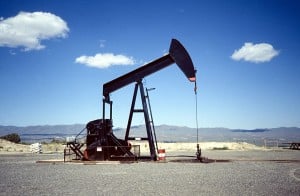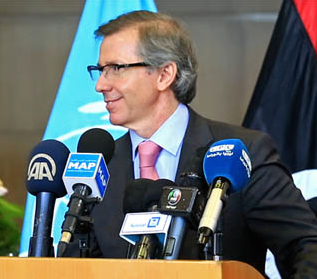By Libya Herald reporters.

Tripoli, September 16 2015:
According to the organisers, some 30 representatives of oil companies and brokers came to Malta . . .[restrict]today for a meeting called by the government-appointed management of the National Oil Corporation. However, in a sign of how sensitive was this gathering held in defiance of the Tripoli-headquartered NOC, none of the participants names was revealed.
Nagi Elmagrabi, appointed by the Beida government in August to head the NOC warned that buyers who continued to deal with Tripoli, could face legal action. They should only be dealing with his NOC management.
In April prime minister Abdullah Al-Thinni demanded that NOC customers pay for Libyan oil via a new Dubai account, abandoning their normal settlement procedure, via a NOC account operated on behalf of the Central Bank by the Libyan Arab Foreign Bank in Naples.
With the possible exception of a few low profile deals, it appears that the government has sold virtually no oil.
Nevertheless, Nagi Elmagrabi, cautioned at Malta conference that buyers should deal only with that government.
Elmagrabi warned international companies about dealing with “illegal management” and said legal proceedings could be considered for violators, albeit as a last resort.
Beida insists that the government’s international recognition status means it is entitled to Libya’s overseas earnings, including its oil income, according to the general international legal precedent.
Aside from foreign reserves, oil and gas revenues are almost the only income for Libya, with both the recognised government and the rival administration in Tripoli depending on these revenues, as does much of Libya’s population.
Production is hovering at about 300,000 to 350,000 barrels per day, about a third of production before the onset of civil war last summer. But the collapse in oil prices since last summer has almost halved the amount of money Libya gets per barrel. Libya has the largest oil reserves in Africa.
Production is mostly centred now in eastern Libya and at offshore fields north of the west coast.
The largest oil port, Es Sider, on the central northern coast, remains shut and under force majeure, a legal status protecting it against liability for not fulfilling contracts, since fighting there last December.
Bernardino Leon, United Nations Special Mission to Libya envoy, told a Spanish newspaper some months ago that he favoured seeing the NOC, along with the Central Bank and the Libya Investment Authority, operated as “independent” entities. [/restrict]







